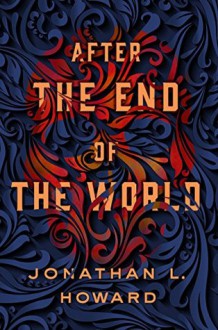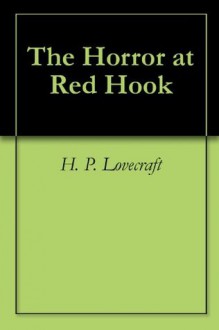
When Francis Ford Coppola's movie Bram Stoker's Dracula came out, my Vampire: The Masquerade gaming group debated its merits. The part we universally enjoyed was not the stylish costumes, or the goofy reincarnation plot, or Keanu's acting, but the opening ten minutes when Vlad Tepes is in plate armor spearing his enemies and throwing swords at crosses. "Why," we asked, "doesn't someone make a movie just out of that bit?"
This book is for that gaming group.
If you ever wondered what Dracula did between his death as Vlad Tepes in the late 1400s and the time of Bram Stoker's story, wonder no more. Vampire Wars is a short story collection about some of those missing years. It begins at the time Dracula (here using the Romanian, "Draculea") barely had two underlings to rub together. It progresses over the centuries to a climactic battle against the only unearthly horror that could possibly stop his minions or dampen his nigh-unbreakable will.
Along the way, Vlad kills, maims, tricks, or strikes bargains with more dead things than you'd find in a Kansas City slaughterhouse. Sure, he has a few monstrous minions such as lycanthropes and humans fed vampiric blood, but in the undead world there are revenants, Persian, African, and Russian vampires, and two notable vampire rivals from China (whom, as far as I could gather, do not hop like in Hong Kong horror comedies, because that's about as terrifying as sparkling).
Some of these undead are wholly original, while many others are well-known in horror circles from mythology, fiction, and history. Johann Faust, Erzsebet Bathory, Mircalla "Carmilla" Karnstein, and a conga line of undead from public domain works make appearances. For some extra spice, there's a cameo by some Lovecraftian byakhee and a passing reference to Angelus from you-know-where. If there's an overarching theme to the world-building here, it's simply "It's true -- all of it."
As other reviewers have pointed out, it's essential to view the chapters as individual stories and not a novel. Practically all my quibbles with the narrative style came from the expectations of reading a single story. The author repeats some information (like Vlad's minions' roles and his powers) quite often, which is irritating in a novel, but makes perfect sense in short stories where one can't be assured of reading the previous installment. Because the stories can't depend on each other, Vlad's rise to power is less a long-term campaign with masses of legions, and more a series of small-unit attacks on powerful undead. Decades go by between stories, giving it an episodic feel, and Vlad's minions are often done in during the fighting or just as often, killed off-screen before a new story begins. By the time we get near the climax, Vlad's survival alone seems like reason enough to crown him as the ruler of the vampires. While Vampire Wars is the first in a trilogy, the ending had enough closure to leave me satisfied, which is usually a sticking point for me.
My remaining quibbles are mostly with editing and the odd anachronistic phrase. Vlad uses "thee" and "thy," but his minions will occasionally pipe up with modern language like "you have to be kidding." As for content, I personally wanted to see a bit more interaction between Draculea and his allies apart from the campaigns, and it appears I am not alone in this. The sequel, Brides of Dracula, appears to cover exactly that ground. So though I took off a star or so for not being a work I would reread obsessively, I think I will be checking out more by the author.
At about 200 pages, Vampire Wars is pretty fast reading. I personally got it on Kindle. I'd recommend it to Lovecraft fans, vampire buffs, and yes, to my old gaming group.
Note: I can't find the author on Booklikes, nor am I able to add him, which means I can't add this book, either. Navigate to Amazon/Goodreads if you are curious.

 Log in with Facebook
Log in with Facebook 








